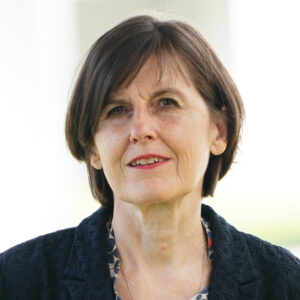At this year’s Gut Microbiota for Health World Summit, you’ll dive deep into how diet drives health and disease. You’ll walk away with important clinical insights and the latest research to hone your GI care.
Meet a few of the leading clinicians and researchers who will present, then plan on attending.
SATURDAY

NutriOmics — the microbiome in a systems approach to obesity
Karine Clément, MD, PhD
In Saturday’s Keynote, Karine Clément, MD, PhD, from Sorbonne Université, shares insights on the gut microbiome’s role in obesity. Dr. Clément will discuss research findings on how gut bacteria influence metabolic disorders and obesity progression. By analyzing the complex interactions among gut microbiota, diet, and host metabolism, she’s identified new therapeutic strategies that integrate data from various sources to develop personalized treatments for obesity and related conditions.
After recognizing the limitations of self-reported dietary tracking methods, Lawrence David, PhD and his team at Duke University developed FoodSeq, a process that uses DNA sequencing to track human diets by assessing plant and animal DNA from human stool to identify individual foods. The team has since created an open-source, ever-expanding, food-specific repository of reference genes, encompassing nearly 900 plant and animal species.

Non-traditional model systems in microbiome investigations
Katherine Amato, PhD
Learn from Katherine Amato, PhD, from Northwestern University, as she shares her work with wild non-human primates. In her work, she examines how the gut microbiome influences host nutrition, health, and evolution. Her findings will enhance your understanding of the complex relationships among diet, microbiota, and health in primate species.

Probiotic supplementation and the infant microbiota
Geoffrey Preidis, MD, PhD
Do preterm infants benefit from probiotic supplementation? Join Geoffrey Preidis, MD, PhD, from Baylor College of Medicine & Texas Children’s Hospital, in an interactive session discussing our current understanding of probiotics for preventing necrotizing enterocolitis and what has changed following the FDA’s Dear Health Care Provider Letter.
SUNDAY

The gut microbiome and cancer
Cynthia Sears, MD
Cynthia Sears, MD, of Johns Hopkins School of Medicine, will share how specific bacteria, like enterotoxigenic Bacteroides fragilis, can cause inflammation and changes in the colon that may result in cancer. As she examines how the overall milieu of gut bacteria affects cancer development and treatment responses, she aims to find ways to identify people at risk and improve cancer treatments.

A biophysical view of the microbiome
KC Huang, PhD
Sunday’s Keynote brings KC Huang, PhD, from Stanford University, who offers a unique perspective as he applies a physics background to study the gut microbiome’s spatial organization and its impact on health. By combining physics, chemistry, and biology, he examines how cells detect their shape, divide, and organize internally. This interdisciplinary approach brings new insights into the physical aspects of biological systems.













